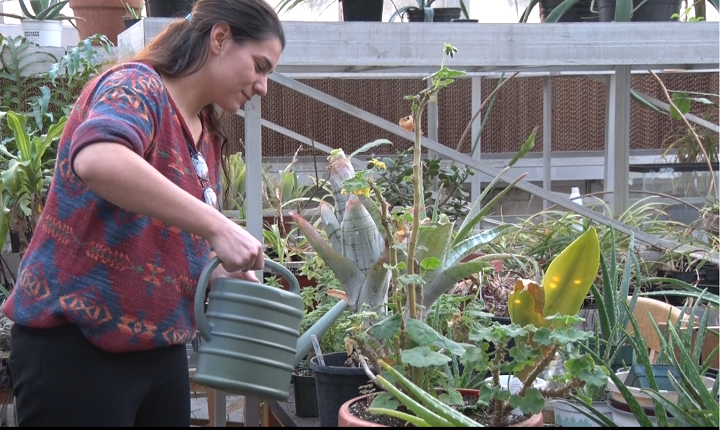It’s a plant, and its good for your health

MARQUETTE — Plants are a wonderful thing to help spruce up any home, but what if there were plants that could actually help Veterans suffering from PTSD or a citizen struggling with depression?
Rachel Ochylski has been working on her thesis at NMU regarding the benefits of horticulture.
In her research, she focused on two groups of the population, veteran senior–citizens and college students, who receive some of the most stressors and higher rates of depression.
“I think that it’s a viable alternative to other things, like medications, right away. You could try gardening first,” said Ochylski.
In her study she found that the populations benefited greatly in over–all health and well–being when working in greenhouses over a twelve week period. Their moods, social activity, and physical health improved overtime.
“There are lots of lessons to be learned in the garden especially for young kids, if you think about planting seeds. That could become a math lesson so easily. It can also instill really important values for the next generation in that nature is important and worth conserving. Every individual is different but it’s worthwhile to try. Get your kids outside. Let your kids play in the dirt. They can benefit from that experience,” shared Ochylski.
Additional studies also prove that exposure to plants in the early stages of life can prevent asthma and allergies. For growing children, it can teach math, biology, and build characteristic qualities.
Plants emit oxygen into the air by drawing in carbon emissions and other pollutants in the air, so they naturally clean the air and studies have also shown that in enclosed places plants can improve the overall air quality. Some of the most beneficial plants, according to NASA, are the areca palm, mother–in–law’s tongue, green spider plant, and the money plant.
“And at Central I had a small apartment and my friends would come over and joke that it was like a jungle I had so many house plants, but I really enjoyed taking care of them it just gave me something to look out for,” added Ochylski.
Ochylski has received her bachelor’s from CMU and will soon receive her master’s from NMU. Her research has been inspired by the love of plants and their influence in her adult life. In the future Ochylski hopes to pursue her doctorate and for the future of plants it is two ‘green’ thumbs up.
